
Postdoctoral Fellows Colloquium
- Annenberg School for Communication
- Room 500 & Zoom
The colloquium will feature presentations by Annenberg postdoctoral fellows across four panels: "Journalism Under Duress", "Genealogies of Data", "Media in/as Space", and "Global Flows of Culture and Critique." Each panel will be followed by a Q&A with the audience.
Schedule
9:30 – 10:00 AM | Breakfast + Opening Remarks
Location: Room 500
- Emily Falk, Vice Dean of the Annenberg School for Communication; Professor of Communication, Psychology, Marketing, and OID (Operations, Informatics, and Decisions); Director of the Communication Neuroscience Lab and the Climate Communication Division of the Annenberg Public Policy Center
10:00 – 11:15 AM | Panel One: Journalism Under Duress
Location: Room 500
-
Nelanthi Hewa, Postdoctoral Fellow at the Annenberg Center for Collaborative Communication
“You Have to Feed the Beast”: Sexual Violence News Coverage in the Digital Age
-
Jeanna Sybert, Postdoctoral Fellow at the Center for Media at Risk
Risky Reporting: Journalistic Precarity Amid Pandemic, Protests, and Insurrection
-
Moderated by Olivia González, George Gerbner Postdoctoral Fellow
11:15 – 11:30 AM | Break
Location: Room 500
11:30 – 12:45 PM | Panel Two: Genealogies of Data Governance
Location: Room 500
-
Julian Quiros, Provost's Postdoctoral Fellow
Archives as Platforms: Mediation, Subjectivization, and Projection in the Early Child Welfare System
-
Aaron Hyzen, Postdoctoral Fellow at the Media, Inequality & Change (MIC) Center
Algorithms and Agency: Epistemic Welfare for the Digital Public Sphere
-
Moderated by Arthur Z. Wang, Provost’s Postdoctoral Fellow
12:45 – 2:00 PM | Lunch
Location: Plaza Lobby
2:00 – 3:15 PM | Panel Three: Media in/as Space
Location: Room 500
-
Cerianne Robertson, George Gerbner Postdoctoral Fellow
Stadium Borderlands
-
Ennuri Jo, Postdoctoral Fellow at the Center for Advanced Research in Global Communication (CARGC)
Wetscapes of Tsai Ming-liang
-
Moderated by Zehra Husain, Postdoctoral Fellow at the Center for Advanced Research in Global Communication (CARGC)
3:15 – 3:30 PM | Coffee Break
Location: Room 500
3:30 – 4:45 PM | Panel Four: Global Flows of Culture and Critique
Location: Room 500
-
Sima Kokotović, Postdoctoral Fellow at the Center for Advanced Research in Global Communication (CARGC)
Global Struggles and Cinema: Political Commitments of Film Cultural Flows
-
Lucy March, Postdoctoral Fellow at the Center on Digital Culture and Society (CDCS)
“Ya’ll Know This is Just My Opinion, Right?”: The Role of Music Criticism in the Influencer Ecosystem
-
Moderated by Eszter Zimanyi, Senior Research Manager, Center for Advanced Research in Global Communication (CARGC)
4:45 – 4:55 PM | Closing Remarks
Location: Room 500
5:00 - 6:00 PM | Reception
Location: Plaza Lobby
About the Speakers
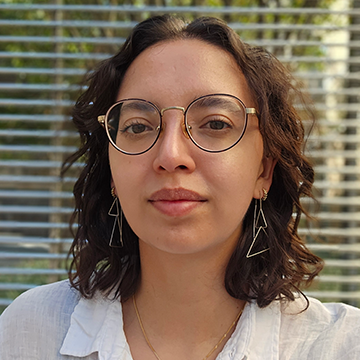
Speaker: Nelanthi Hewa is a first-year postdoctoral fellow at the Center for Collaborative Communication at the Annenberg School for Communication at the University of Pennsylvania. She received her Ph.D. from the University of Toronto’s Faculty of Information in 2024. Her work critically examines journalism labour, digital media, and intersections of identity in topics such as news coverage of sexual violence, racialized writers’ work on Substack, and GamerGate. Her research has been published in several journals, including Communication, Culture and Critique, New Media & Society, and Feminist Media Studies.
Presentation Title: “You Have to Feed the Beast”: Sexual Violence News Coverage in the Digital Age
Abstract: My ongoing book project examines how digital media and the working conditions of journalists shape sexual violence news coverage in Canada. I propose that journalistic working conditions overdetermine what kinds of stories can be told. Worker exploitation, the growing role of digital media, and the intensification of digital journalistic work play a fundamental role in shaping the experiences of survivors and those who interview and write about them. Survivors of sexual violence and harassment are harassed again to make themselves available and transparent to overworked journalists for whom being profitable is increasingly an existential concern. I analyse news stories, social media platform affordances, and my findings from 12 interviews with journalists who have investigated sexual violence or harassment cases in Canada.
As part of my colloquium presentation, I will discuss a case study from Chapter 4 of my book, in which I examine the 2018 viral news story of a groping allegation against Justin Trudeau. I bring together media theory with Sara Ahmed’s work on queer phenomenology to argue that digital media's orientation towards publicity and exposure—the assumption that what is online is public—is crucial to understanding how sexual violence is reported on today, and in how credible victims are constructed and understood. I find that the speed of digital news equally pushes journalists to seek out stories online and treat them as already available, with digital media functioning as what I call a labour-saving device that mitigates the need to find on-the-record sources or do extensive interviews.
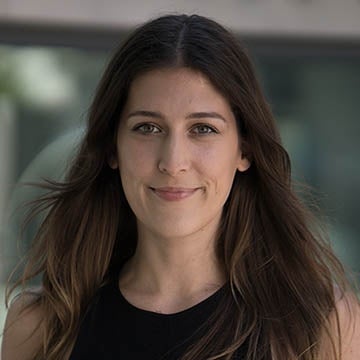
Speaker: Jeanna Sybert is a postdoctoral fellow at the Center for Media at Risk at the Annenberg School for Communication at the University of Pennsylvania. Her research broadly explores media ecosystems in times of flux and their relationship to labor conditions, communication practices, and public discourse. In her doctoral dissertation, Sybert examines how U.S. journalists navigate simultaneous crises and compounding risks within an increasingly precarious occupation, focusing on the COVID-19 pandemic, Black Lives Matter uprisings, and the 2020 presidential election. Her work appears in leading academic journals including Journalism, Journalism Practice, and New Media & Society, and has received Top Paper Awards from the International Communication Association. Sybert earned her Ph.D. in Communication from the University of Pennsylvania in 2024.
Presentation Title: Risky Reporting: Journalistic Precarity Amid Pandemic, Protests, and Insurrection
Abstract: This dissertation investigates the heightened vulnerability U.S. journalists face today by examining a recent critical juncture marked by three interlinked crises: the COVID-19 pandemic, Black Lives Matter uprisings, and the 2020 presidential election. Drawing on interviews with 47 journalists who encountered hazards while covering these events, the study develops embodied precarity to foreground the physical and emotional vulnerabilities that arise both from specific dangerous situations and ongoing systemic insecurity. These dynamics manifest through and are reinforced by a regime of risk — an institutional system of principles, rules, and norms that governs journalists’ relationship with risk. Analysis of this system identifies two pillars: a culture that selectively valorizes risk-taking and structural
mechanisms that uphold its hierarchies by rewarding conformity and penalizing deviance. Combined, they function as a technology of control, constraining workers’ actions under the guise of autonomy and choice. The analysis also shows how media coverage of endangered journalists activates the regime’s mythic foundations, serving as opportunities to bolster journalism’s legitimacy through the public display of its ideals. Moments where journalists become “the story” thus enable the regime to consolidate itself even amid broader institutional instability. Taken together, these findings situate journalistic risk within a convergence of material conditions, organizational pressures, and occupational socialization that ultimately serve a capitalist media system. By tracing the institutional and commercial forces that drive such a regime, this study illuminates how vulnerability becomes entrenched within an increasingly precarious occupation. As the pressure intensifies, it not only narrows who can tell which stories, but also limits the forms of journalism possible under such strain.
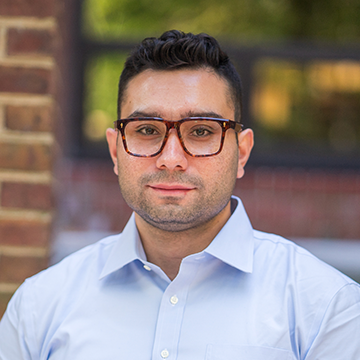
Speaker: Julian Quiros is a Provost's Postdoctoral Fellow at the University of Pennsylvania’s Annenberg School for Communication. His scholarship interrogates the use of data and platforms in the fields of social welfare and education, and engages various disciplines, including Critical Data Studies, Media Studies, Feminist Science Studies, Cultural Studies, and Black Studies. His current projects center the production of administrative data in the U.S. child welfare system in historical and contemporary contexts. He is working on a monograph based on his dissertation, Scenes of Measurement: On the Production of Administrative Data in the Philadelphia Child Welfare System from 1877 – 1923, which received the Data Fluencies Dissertation Grant from the Social Science Research Council, and is developing a multi-modal, qualitative study aimed at understanding the process of constructing case management software in child welfare organizations. Julian holds a Ph.D. in Social Welfare from the University of Pennsylvania’s School of Social Policy and Practice and was a Doctoral Fellow at the Edmund W. Gordon Institute for Advanced Study at Teachers College.
Presentation Title: Archives as Platforms: Mediation, Subjectivization, and Projection in the Early Child Welfare System
Abstract: This article investigates how archives, as platforms, contributed to the establishment of the modern U.S. child welfare system. Leaning on work on the interface which defines it as a relation that integrates and mediates the social, this article de-privileges the computational context of studying platforms, instead asserting that archives functioned as a media that defined and delimited for the public what child abuse and neglect was, and who committed it. Attending to the epistemologizing functions of bureaucratic media, this article asks through a case study of the Pennsylvania Society to Protect Children from Cruelty (SPCC), how might (re)defining the platform(/archive) as a central technology of post-enlightenment governance open up different understandings of media and history? Through a close reading of the SPCC Annual Reports from 1877 – 1923, this article traces how annual reports were central in writing families outside of the category of the human, and how they worked to transmit the affects of “child-saving,” thereby playing a crucial role in the racialized and racializing functions of the child welfare state. Specifically, narratives and data presented in annual reports explicitly demonstrate the biopolitical motivations, reparative drives, and eugenic theories of impressibility undergirding the work of the SPCC. This article looks backwards towards more fully tracing the platform’s role in the post-enlightenment, colonizing project of modernity, contributing to histories of social welfare, and making a crucial historical intervention into platform studies.

Speaker: Aaron Hyzen is a postdoctoral fellow at the Media, Inequality & Change (MIC) center at the Annenberg School for Communication at the University of Pennsylvania. His research focuses on how ideology and knowledge circulate in society through mediated communication. Working at the intersection of communication studies, political economy and philosophy, he uses a mixed-methods approach to analyze political discourse and the technologies, structures and powerful interests that enable or constrain understanding. His doctoral dissertation, Propaganda in the 21st Century: Ideology, Truth and Power, focused on propaganda in typical (e.g., war, state propaganda, electioneering) and emerging cases (e.g., QAnon, anti-vax, flat earth), demonstrating the continued importance of propaganda as a form of strategic communication in contemporary political and social life. He emphasizes understanding the relationship between the digital affordances of Web 3.0 and aspects of the post-truth era like mis/disinformation and conspiracy theories, while recognizing the importance of accurate or “true” information as an underappreciated component of propaganda campaigns. His recent research in an interdisciplinary project on algorithmic gatekeeping aims at understanding and providing policy recommendations regarding media related, algorithmic recommender systems and artificial intelligence. He focused on developing the novel concept of epistemic welfare, which refers to creating and maintaining the conditions and capabilities for epistemic agency in the public sphere.
Presentation Title: Algorithms and Agency: Epistemic Welfare for the Digital Public Sphere
Abstract: Taking a conceptual approach, this presentation explores the notions of epistemic agency and epistemic welfare to build a novel and coherent framework to think about the impact of Artificial Intelligence (AI), and especially algorithmic recommender systems, in media and communication. The possibilities, realities and threats of algorithms and AI used by media and platforms have taken a prominent position in communication research, especially in the so-called post-truth era. The novel concept of epistemic welfare, defined as creating and maintaining the conditions and capabilities for individuals’ epistemic agency in the digital public sphere, this contribution provides a framework to think of a way out of what has been described as an epistemic crisis, referencing algorithmic recommender systems and AI used by media organizations as a case in point. Likewise, to understand the lack of content diversity, economic costs, exclusion of vulnerable and minority groups (epistemic injustice) and other barriers to digital equity. This entails, first, identifying the main techno-social processes of datafication, algorithmization and platformization and their transformation of the public sphere in the digital era, specifically on knowledge production, dissemination and acquisition. Next, by combining insights from social epistemology and welfare studies with communication and media studies research to build a framework that allows to analyze how well structures, organizations and practices that relate to communication in the public sphere fulfill epistemic standards and, thus, contribute to individuals’ opportunities to exercise their epistemic agency and reach epistemically valuable states. Finally, discussing what the notion of epistemic welfare means for media policy towards an equitable information ecosystem.
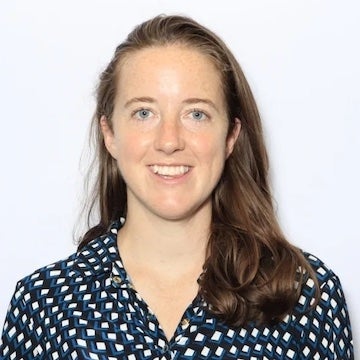
Speaker: Cerianne Robertson is a George Gerbner Postdoctoral Fellow at the University of Pennsylvania’s Annenberg School for Communication. She is an urban communication and cultural studies scholar who explores how power is formed, networked, wielded, and challenged in contests over cities’ futures. Cerianne’s work engages urban development and city storytelling, spatial and racial discourses and imaginaries, and the movements and communities organizing for social-racial-housing justice. Part of her work focuses on spectacular development projects and spectacular sports mega-events — rich sites for analysis because they intensify debate about a city’s trajectory, revealing competing values and spatial imaginaries. A complementary component of her work focuses on everyday, sustained struggles for survival, dignity, and popular power. Such struggles reveal both mechanisms of spatial and social inequality and potential pathways toward more just urban spaces.
Cerianne received a Ph.D. in 2024 from ‘the other Annenberg’ at the University of Southern California. Prior to her Ph.D., she worked in Rio de Janeiro, Brazil, as an editor and reporter for RioOnWatch, a platform that documented the impacts of that city’s sports mega-events on the region’s favelas.
Presentation Title: Stadium Borderlands
Abstract: Los Angeles County has been on a stadium-building spree. The construction of three new sports and entertainment venues in the past decade has fueled rapid material changes to Inglewood and South Central LA. The new stadiums are anchors in broader redevelopment projects to construct and cement the two areas as “sport and entertainment destinations,” part of a larger vision “to make Los Angeles the most desired host city in the world” — a region that will regularly attract national and global mega-events like the Super Bowl and the Olympics.
The construction of Inglewood and South Central LA as sports and entertainment destinations has come at significant cost to local residents. In my book project, I examine how the real estate developers, sports teams, university leaders, and public officials behind such projects deploy racial and social justice discourses to promote their development agendas, and how these discourses tend to de-emphasize — or outright exclude — tenants. I show stadium development has coincided with and further fueled a surge in tenant organizing, as a range of groups with diverse political analyses and strategies fight to keep Latino and black working-class and poor tenants in their homes, and struggle for power to shape their neighborhood’s development.
In this talk, I will draw on select examples from my in-progress book to explore its proposed analytic: stadium borderlands. Drawing on Gloria Anzaldua’s seminal writing on borderlands, and on Margaret Ramírez’s more recent work on urban borderlands, I suggest that stadium borderlands are shifting and tumultuous sites of friction, where the project of building ‘destinations’ rubs up against struggles to keep tenants in their homes, to build and experiment with ‘community power,’ and to imagine more just urban futures.
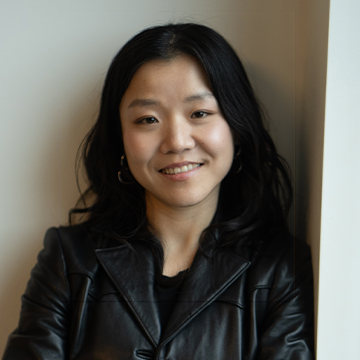
Speaker: Ennuri Jo (she/her) is a postdoctoral fellow at the Center for Advanced Research in Global Communication (CARGC) at the Annenberg School for Communication at the University of Pennsylvania. She studies intersections of film theory, early cinema and global ecomedia, and theories of technology. Her first project and book-in-progress “Aqueous image: cinema and the rhetoric of water at the end of the world” considers water as an epistemological figure in film history that gives us new perspectives on the experience of the image, the relationship between nature and technology, and our understanding of the climate crisis and the Anthropocene. At CARGC, she is working on additional chapters to the manuscript in which she will expand the project’s focus on the traditional film form and theory to include contemporary global time-based media objects. Her second project considers contemporary media narratives of the secular post-apocalypse that, instead of perpetuating anthropocentric and nervous visions of the end, conjure a nonhuman, multi-species, and machinic sensibility that helps us envision a more sustainable relationship to the world.
Presentation Title: Wetscapes of Tsai Ming-liang
Abstract: Bodies in water, bodies of water, images of water, water as image. Cinema’s gaze upon water is both pervasive and reflexive. Images of water, especially in the context of cinema’s own perceptual capacities, mark thresholds in experiences of subjectivity and embodiment, alternative conceptions of time, and ontological possibilities that exceed Western thought’s privileging of the human and the world. Among images of water in world cinemas, this presentation will analyze the aqueous cityscapes of Tsai Ming-liang’s films, with specific attention to Stray Dogs (2013) and Days (2020). The motif of water Tsai’s films has been cited as a contributor to the filmmaker’s oft-examined themes of the slow passage of time, decaying urban spaces, and surplus eroticism. In my presentation, I show how Tsai’s images of water both uproot and ground universal(izing) motifs of alienation and decay to the specific urban landscape of Taipei, offering a non-chronological and multitudinous sense of time and, a la Gilles Deleuze, subjectivity. To better understand Tsai’s aqueous images and their alternative regime of sense, I examine Jean-luc Nancy’s writings on porous embodiment and the ontology of the “being-with,” and Deleuzian theories of cinematic time and subjectivity. The presentation considers the ways in which aqueous images facilitate examination of cinema’s dissolution of the human and the affects, atmospheres, and bodies that remain, especially given the post-apocalyptic sensibility of his films that deal with social and ecological decay. Ultimately, I ask: what alternative possibilities of organizations of life and being do watery bodies in Tsai’s film present?
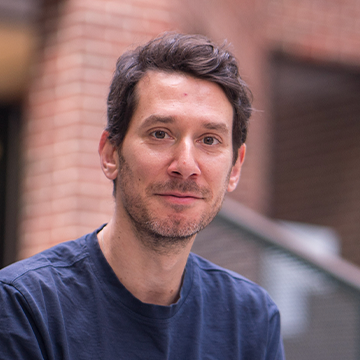
Speaker: Sima Kokotović is a postdoctoral fellow at the Center for Advanced Research in Global Communication at the Annenberg School for Communication at the University of Pennsylvania. His research examines intersections between media circulation and leftist political cultures in the global context. More specifically, through a transnational lens, he writes about film cultures’ roles in the movement of progressive ideas, sentiments, and alliances across borders. His work has been published in Screen, Framework, Synoptique, and Canadian-American Slavic Studies, among other places. Parallel to academic work, he has contributed to several public-facing cultural projects that center on exploring the political capacities of contemporary media as instruments of mobilization, empowerment, and community building.
Presentation Title: Global Struggles and Cinema: Political Commitments of Film Cultural Flows
Abstract: This presentation draws on my book project, Cinematic Solidarities: Cinema Amidst Global Vistas of Struggle, to offer insights into how film cultural workers from across the world responded to the global wave of uprisings in the 2010s. Centering the work of a collective of filmmakers, film programmers, and activists from Guinea Bissau and Portugal—gathered around the project Luta ca caba inda (the struggle is not over yet)—it unpacks a complex media assemblage that emerged as a result of a new form of politically engaged cinematic practice.
The number and intensity of protests and demonstrations in the 2010s were more extensive than in any period in history, fundamentally changing our understanding of spaces, forms, protocols, and actors of political actions. In addition, the events' global dimension foregrounded the mechanisms through which the new political actors related to each other across distances. The debates that emerged in response to these political processes have tended to highlight the issue of organizing, especially in a global context, as a central one (Mezzadra and Neilson, 2019; Gills and Chase-Dunn, 2021; Nunes, 2021). My presentation builds on this incipient “theory of organizing” to, on the one hand, analyze how film cultural workers have refashioned existing film cultural practices at their disposal and, on the other, to posit that the effect of these reconfigured practices is a creation of new transnational solidarities.
Speaker: Lucy March is a postdoctoral fellow in the Center on Digital Culture and Society at the Annenberg School for Communication at the University of Pennsylvania for 2024-2025. Her research focuses on digitally-based music communities and the ways in which gender, sexual, and racial identity are negotiated within these scenes. Her book manuscript based on her dissertation, tentatively titled Internet Music: Culture, Identity, and Community, explores musical subcultures that emerged from the Internet, and argues that these understudied spaces are crucial sites for understanding the consequences of the dominance of platforms like YouTube and Spotify for the production and circulation of media, as well as how Internet users, particularly those with diverse identities, make sense of their relationships with digital technologies through popular culture. She also studies meme cultures and digital celebrity. Her work has appeared in Popular Communication, Television and New Media, Lateral: The Journal of the Cultural Studies Association and others. She has presented at international conferences including the International Communication Association and the International Association for the Study of Popular Music, and she serves on the governing board of the Cultural Studies Association. She received her Ph.D. in Media and Communication from Temple University in 2024.
Presentation Title: “Ya’ll Know This is Just My Opinion, Right?”: The Role of Music Criticism in the Influencer Ecosystem
Abstract: Numerous scholars have considered the changing nature of the cultural critic in the digital age, and how blurred lines between cultural gatekeepers and consumers in a prosumer environment have transformed how we share our thoughts about culture (Gillespie, 2012; Frey, 2015). The perceived threat of these dynamics to professional music critics has long elicited anxiety: as early as 2009, freelance journalist Christopher Weingarten famously lamented the “death of rock criticism” at the hands of the new microblogging platform Twitter (Kaufmann, 2009). Indeed, the first name younger fans in particular might now seek out for their musical opinions is not a Rolling Stone byline but Anthony Fantano, who built up his audience on YouTube to now boast several million followers between his various social media accounts, and who the New York Times referred to as “probably the most popular music critic left standing” (Coscarelli, 2020). For McLeese (2010), music journalists can no longer rely on the reputation of a legacy media platform for an audience, and will thereby need to possess “more of an entrepreneurial spirit, or at least a flair for self-promotion” (p. 446), both characteristics that are often attributed to successful influencers. Building on previous research I conducted on Fantano and the robust fan culture surrounding him, this paper will examine how music criticism is shaped by Internet culture and the attention economy more broadly. It will engage in a critical discourse analysis of Fantano’s digital presence alongside other digital music ‘influencers’ including Kelsie Herzog (@theyelllowbutton), Derrick Gee (@gee_derrick), and Pablo, The Don (@pablothedon) to theorize the impact of notions like Bishop’s (2023) influencer creep on digital music criticism, and how dynamics of platformization and microcelebrity shape these figures’ content. In doing so, I hope to disrupt the often circular nature of arguments around the death and rebirth of music criticism (Koch, 2022), to recognize emergent forms of music discourse online.
Events
View AllDisclaimer: This event may be photographed and/or video recorded for archival, educational, and related promotional purposes. We also may share these video recordings through Annenberg's website or related platforms. Certain events may also be livestreamed. By attending or participating in this event, you are giving your consent to be photographed and/or video recorded and you are waiving any and all claims regarding the use of your image by the Annenberg School for Communication. The Annenberg School for Communication, at its discretion, may provide a copy of the photos/footage upon written request.
